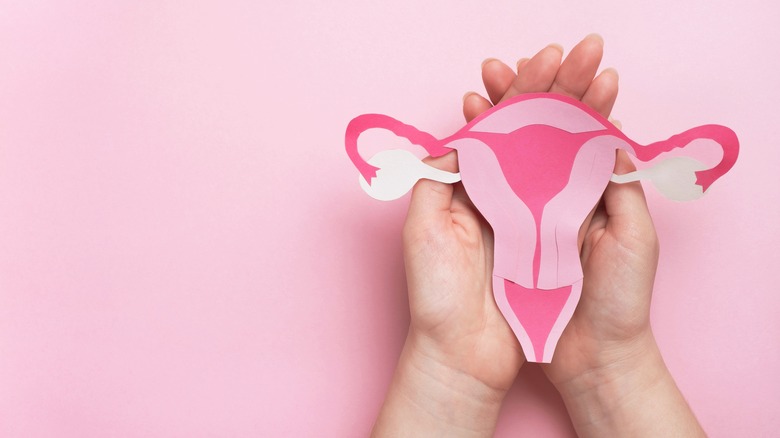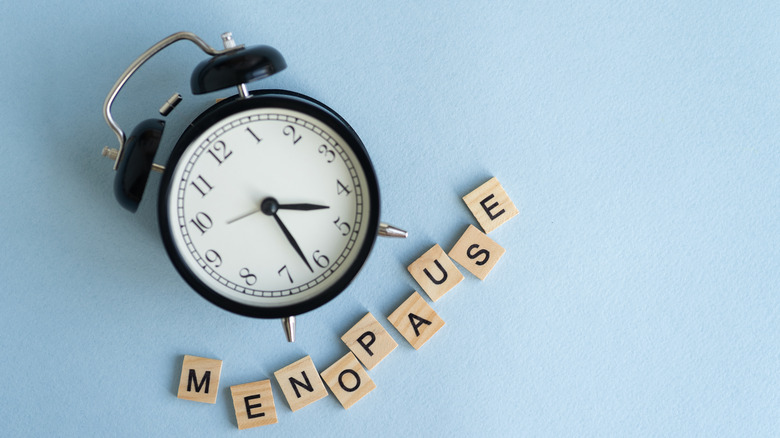How Long Does Menopause Typically Last?
For many, mentions of the big "M" conjure up images of elderly ladies wrapped in shawls and sipping hot tea in a rocking chair. Menopause is an inevitable stage of a woman's life. Depending on your perspective, it can feel like a ticking time bomb or a countdown to a new kind of freedom. Menopause, as explained by The North American Menopause Society, is the final menstrual period a woman experiences. A woman is said to have entered menopause when she has missed 12 consecutive menstrual cycles naturally. This typically occurs later in the lifespan. It is important to note that some birth control methods, such as hormonal IUDs, can cause the cessation of menstrual cycles in younger females, but they will be resumed when the birth control is discontinued (per Health Grades).
Menopause itself is actually preceded by a period of four to eight years, called perimenopause (via The North American Menopause Society). During this time, according to Health, the number of eggs a woman has becomes significantly decreased, resulting in fewer periods that are more spaced out. For many, menopause signals the end of fertility or the ability to conceive children naturally.
Symptoms of menopause
Those individuals who are experiencing perimenopause may notice that monthly periods begin to be lighter, shorter, and less frequent (via Medical News Today). For women who have entered menopause, the cycles have stopped completely. However, there are other symptoms of menopause resulting from hormone fluctuations as the body adjusts to a new type of normal. These can include physical symptoms, like hot flashes, night sweats, and vaginal dryness. It can also include changes in experiences of anxiety, sex drive, and overall mood.
Another common side effect, according to The North American Menopause Society, is vaginal atrophy, which results from the dramatic decrease in estrogen production. Women may experience difficulty with weight loss or gain a few extra pounds, and undergo changes in their hair and skin (via Mayo Clinic). Additionally, some women can expect changes in the natural curvature of their physique, as a result of hormone changes.
How long does menopause last?
So how long does menopause last? That can be a bit tricky. As with the variety of our individuals, menopause seems to take an individualistic approach. On average, according to the National Institute of Aging (NIH), most women enter menopause between the ages of 45 and 55. However, there have been cases where women as young as 35 have been menopausal, while some women as old as 60 are just entering menopause (per Health). The causes for these variations aren't exactly pinpointed but factors, like weight, lifestyle habits, such as smoking, and family genetics play a role (via The North American Menopause Society). The average age for an American woman in menopause is currently 52, as per Medical News Today.
Keep in mind, the average length of time a woman experiences the symptoms associated with menopause is 10.2 years explains a 2012 study. On the other hand, experts at Health average the length at seven years but explain that some individuals can experience symptoms for as long as 14 years. The good news is that while menopause can be a tricky experience to predict, managing the symptoms can be done with a few lifestyle changes, like incorporating good nutrition, natural remedies, and talking with your doctor.



